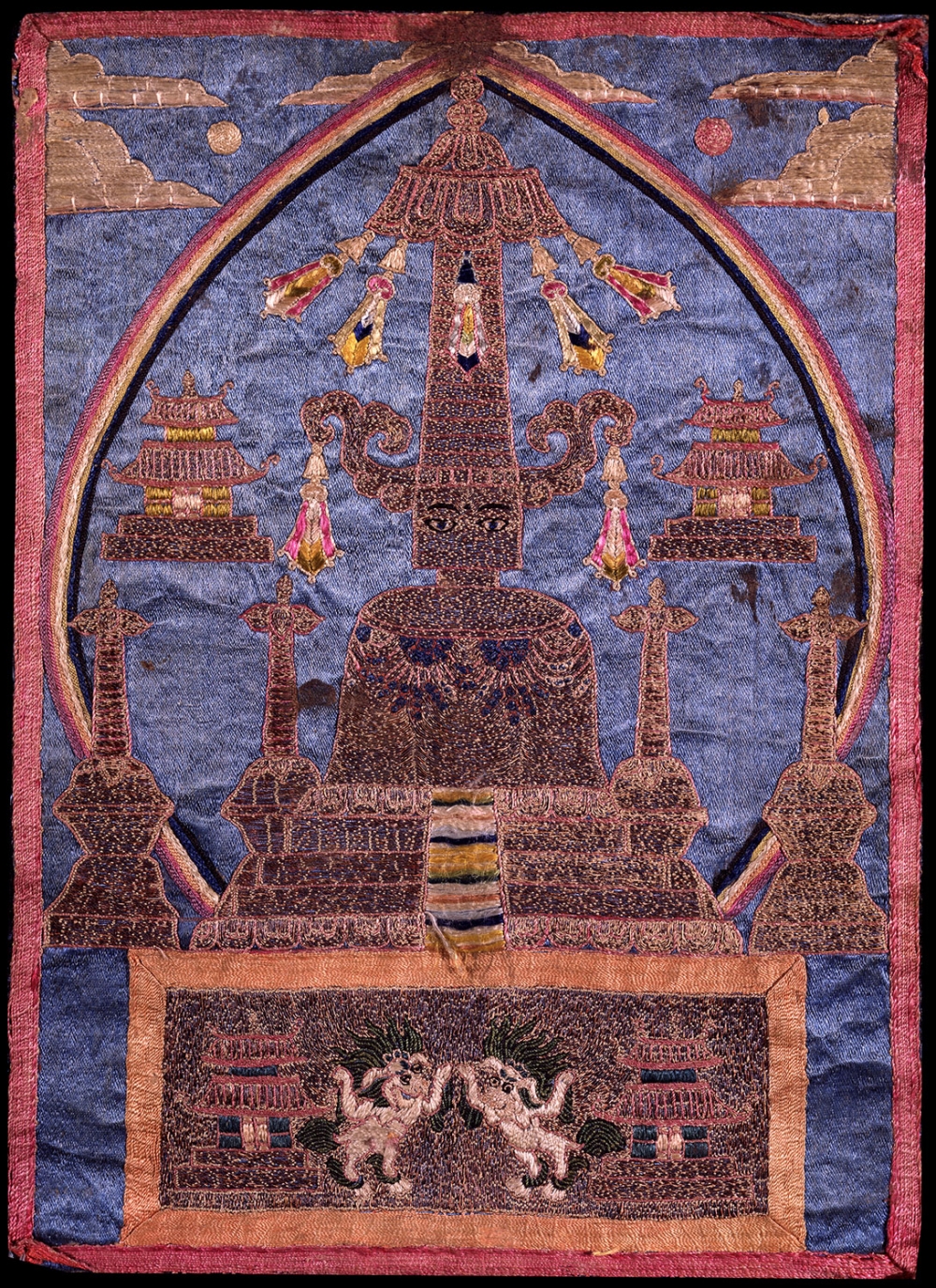
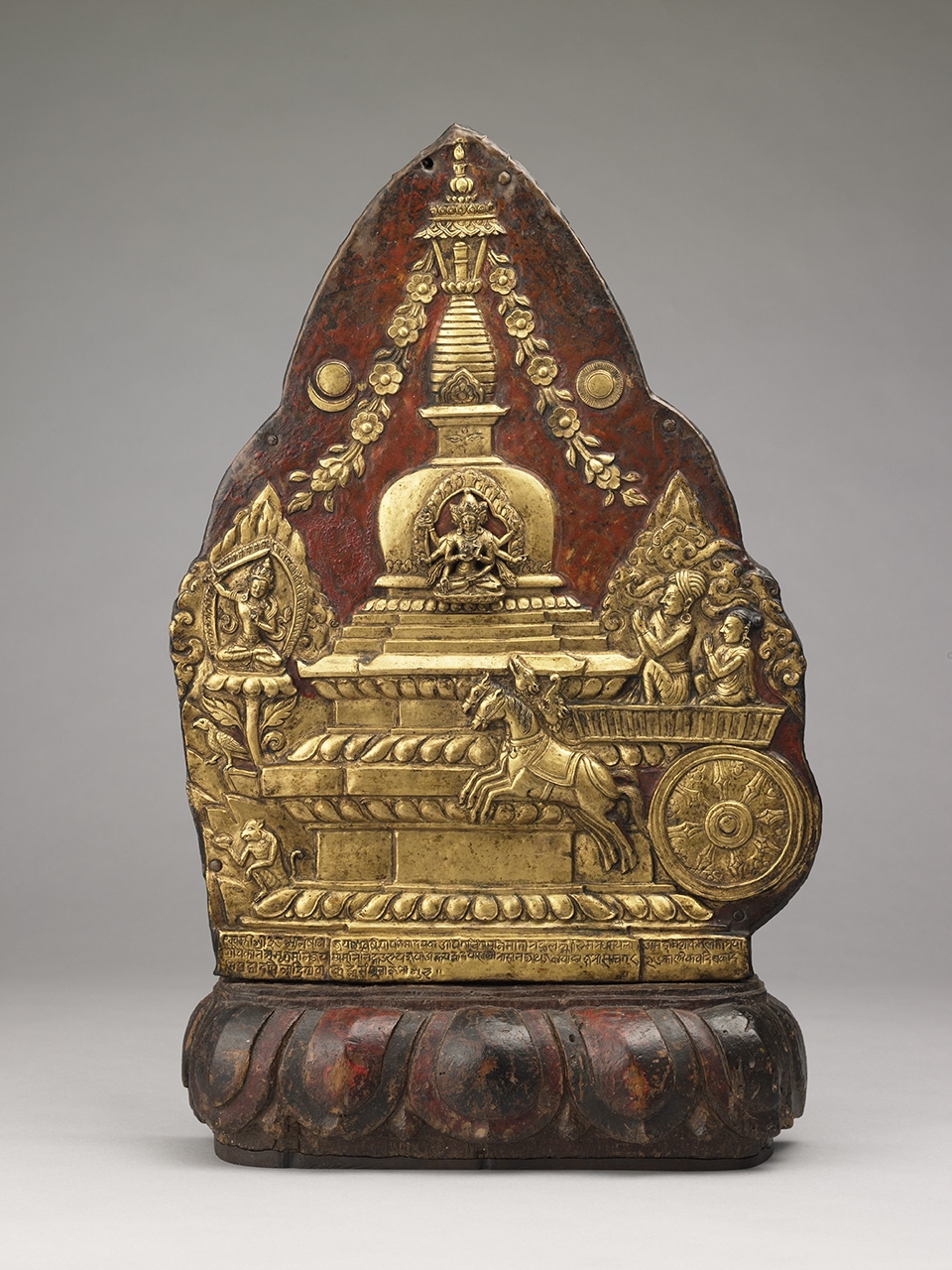
This exquisitely crafted gilded répoussé plaque depicts a special birthday celebration common to the Kathmandu Valley known as the Chariot Ritual [...]
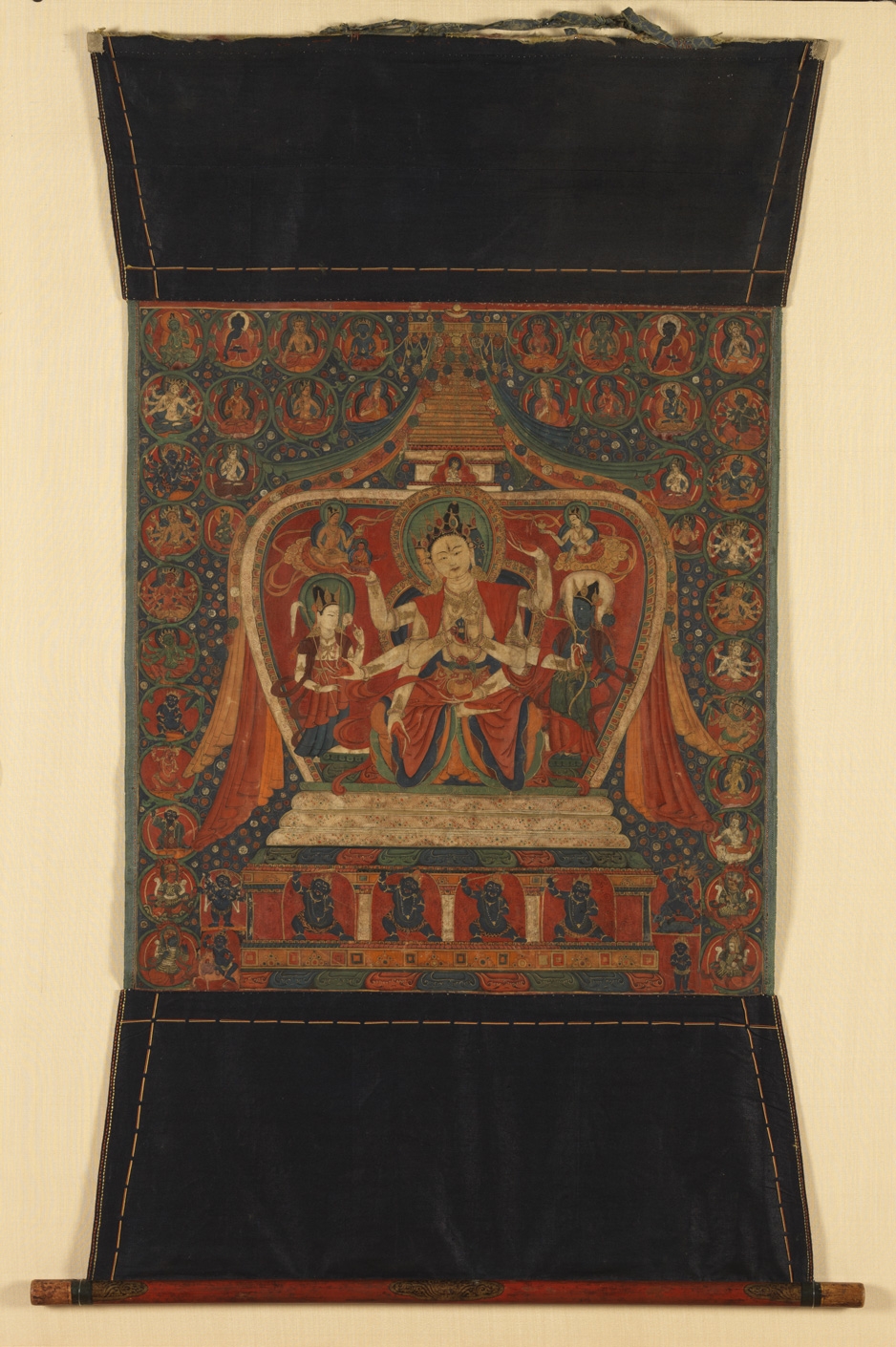
The eight-armed goddess Ushnishavijaya resides at the center of this painting inside a richly ornamented stupa. She is one of the three Buddhist deities of long life, along with White Tara and Amitayus. She became popular in Tibet and the Himalayas in the fourteenth century, where she can be found depicted in portable paintings (thangkas), temple murals, and three-dimensional stupas.
In this painting Ushnishavijaya is flanked by the bodhisattvas Avalokiteshvara (white) and Vajrapani (blue) as well as two small celestial deities floating on clouds and bathing her in nectar. A small image of Vairochana, the Buddha from which Ushnishavijaya emanates, sits directly above her within a trefoil-arched niche. Four blue protectors stand in the arched base of the stupa, while numerous deities ensconced in scrolling lotus vine roundels are neatly arranged around the stupa.
This painting is among the most beautiful depictions of Ushnishavijaya in the architectural frame of a stupa. The lavish decorative elements offer strong visual appeal—the dense coloration, flowing textiles and floral garlands, sumptuous jewelry, and small blossoms that fill the background. This painting is also important because it reflects the intersection of Tibetan and Nepalese painting styles during the fifteenth century.
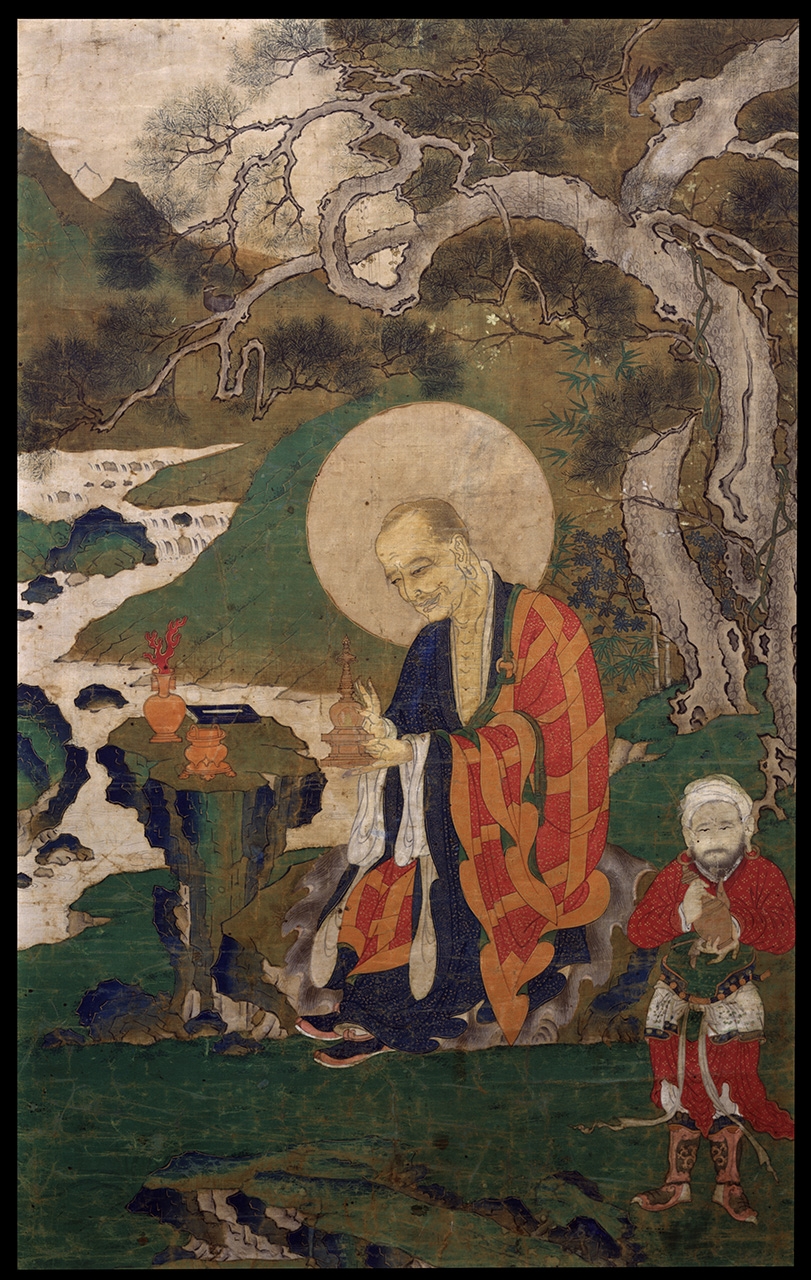
Abheda is one of the sixteen arhats, the original disciples of the Buddha. His identifying attribute is a [...]
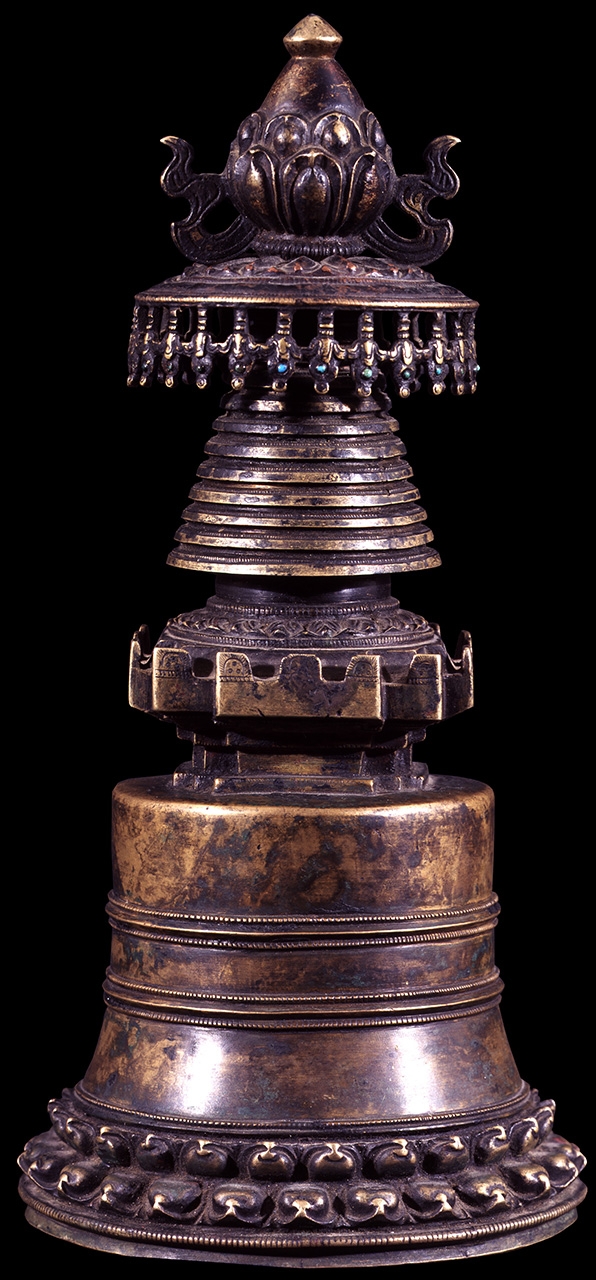
The stupa is a symbol found across all Buddhist traditions. It originated in India as a mound made to hold sacred remains, like those of the historical Buddha Shakyamuni [...]

